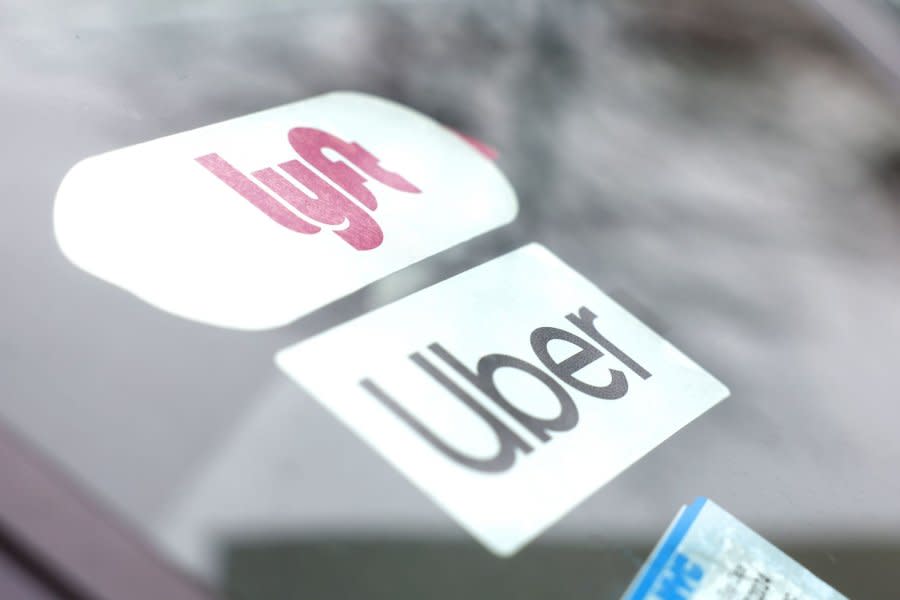Rideshare program could help more people get colonoscopies

Aug. 1 (UPI) -- A Seattle hospital is using the Lyft rideshare service to remove an oft-cited obstacle to patients getting a colonoscopy: the lack of a ride home after the procedure.
Researchers at the University of Washington School of Medicine and the Fred Hutchinson Cancer Center in Seattle conducted a joint pilot study and found that providing transportation removed the hurdle to colonoscopy for many patients who otherwise would have avoided the screening or follow-up appointments.
"Rideshare, given how common it is, was a good solution," Dr. Rachel Issaka, who directs the UW Medicine/Fred Hutch Population Health Colorectal Cancer Screening Program, told UPI in a recent interview.
They use the Lyft Concierge platform, which enables organizations to schedule and pay for a ride that passengers can request. The study was funded by the National Cancer Institute, part of the National Institutes of Health.
"The health organization scheduled the ride and had the ability to track patients on the platform until they reached their destination," Issaka said.
They are looking to expand the service, hoping it could help facilitate lung cancer screenings (bronchoscopy) and other exams for which patients receive sedation.
The rides typically cost about $20 to $25. The researchers want to explore analyses that would encourage insurance companies to cover the service, Issaka said.
In prior studies, transportation has been cited as one of the main barriers to getting a colonoscopy, which is key to early detection of colorectal cancer.
The American Cancer Society reported in March that twice as many people under 55 are developing colon cancer than 25 years ago. This year more than 153,000 Americans will be diagnosed, with 52,550 dying from the disease.
The U.S. Preventive Services Task Force recommends adults age 45 to 75 be screened regularly for colorectal cancer.
Although colorectal cancer is among the most preventable malignancies, Issaka said 1 in 3 people who are due for screening have not completed it. Improvements to screening and follow-up of non-invasive tests will help detect cancer sooner, when it's easier to treat.
Health experts have discussed the lack of transportation or a chaperone being an obstacle to colonoscopy for awhile, said Dr. Uri Ladabaum, director of the Gastrointestinal Cancer Prevention Program at Stanford University School of Medicine.
"Health systems need to think about this in broad ways because it definitely applies to patients seen in underserved communities who have personal socioeconomic constraints," said Ladabaum, who was not involved in the study.
"It also applies to patients who may not have those constraints, but who face questions of practicality and logistics."
Dr. Rajesh Keswani of the Digestive Health Center at Northwestern Medicine and director of endoscopy for Northwestern Memorial Hospital in Chicago, also recognizes the transportation problem for patients whose friends and family work during the day and can't offer a ride. But he cited liability concerns with a rideshare service.
"Prior to the pilot study, concerns were raised around whether patient participants would make it home safely after receiving sedation. All patients are recovered after sedation and released when it is medically appropriate and, to date, all patient participants have made it home safely," said Ari Bell-Brown, a research program manager at Fred Hutchinson.
Patients who have used the service, recruited from Harborview Medical Center in Seattle, cited short wait times, convenience and lack of costs as benefits, according to an abstract of the rideshare study published in May in the journal Gastroenterology.
Recruitment in the program is ongoing, with participants identified by the clinical team that screens patients to ensure they have a chaperone or transportation arranged before scheduling a colonoscopy.
Yale New Haven Health has also found colonoscopy is more accessible to patients when transportation is facilitated. It collaborates with Uber Health, M7, Veyo and Curtain Livery, said Lori Ryder, executive director of nursing in digestive health.
"Once a patient is in our system and scheduled for their procedure, we discuss transportation with the patient. If the patient expresses concern, we help facilitate transportation options," Ryder said.
"In the past, we did not have any options, and many patients had to forgo their endoscopic procedure. Matching patient's needs to the best transportation option improves compliance."
Leslie Bresowsky, a New York accountant who lives in Brooklyn and works in Manhattan, had a family member escort him home after an upper endoscopy in May.
But twice he used a visiting nurse service to pick him up after a colonoscopy. The cost was $120 a year ago.
"If you need someone to sign you out, then you need the service," Bresowsky said. "You shouldn't skip this test."

